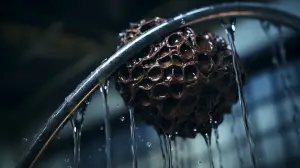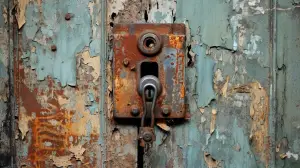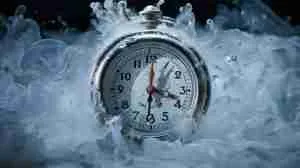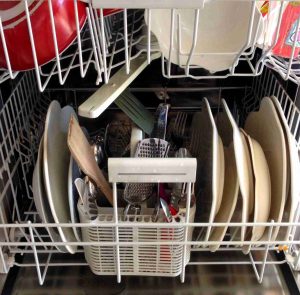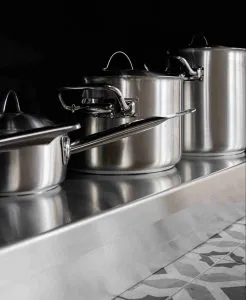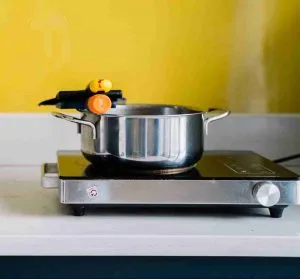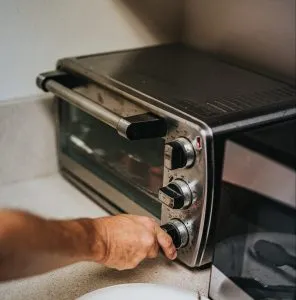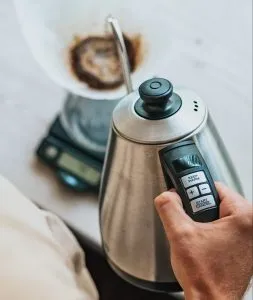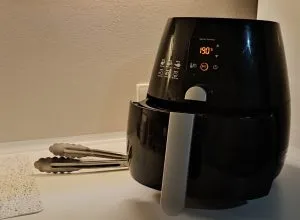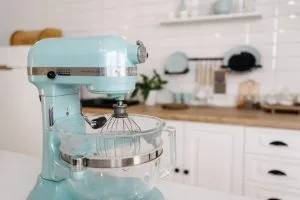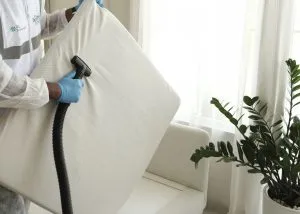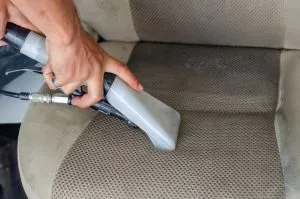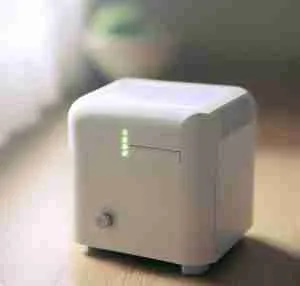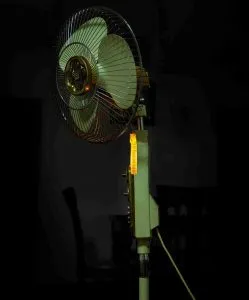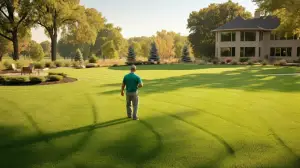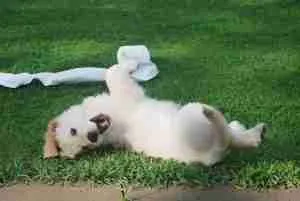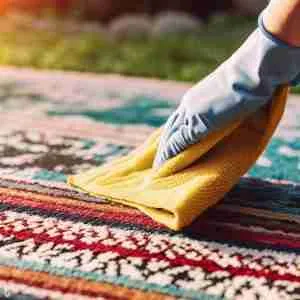Fishing rods can be a real challenge to store, especially if you’re limited on space in your garage. Did you know that improper storage of fishing rods can actually shorten their lifespan and affect performance? This article is your handy guide to storing fishing rods in the right way, protecting them from damage, and ensuring they last longer.
Stay with us as we dive into the best practices for rod storage that will give your gear the care it deserves and make it ready for your next fishing trip!
For more garage storage tips, especially for larger equipment, check out our guide on lawn mower storage in the garage.
Contents
ToggleKey Takeaways
- Properly storing any rod collection in the garage is important for their longevity and performance.
- Prepare your fishing rods for storage by cleaning them, lubricating the reel, and letting them dry fully before storing.
- Consider using fishing rod tubes or cases to protect your rods from damage during storage.
- Find suitable locations in your garage that are cool, dry, and away from potential hazards to store your fishing rods.
Preparing Your Fishing Rods for Storage

Getting your fishing rods ready for storage is key to keeping them in good shape.
- First, give your fishing rod a good clean. Wipe off dirt and saltwater.
- Use light oil to lubricate the reel.
- Let the fishing rod dry fully before you store it. This helps stop moisture from causing rust.
- Wrap your clean, dry fishing rod in a cotton sheet or towel to keep dust off.
- If you plan to keep your fishing rod for winter, apply some wax or oil.
- Always keep your gear in a cool, dry place.
Different Fishing Rod Storage Solutions

There are various options for keeping spinning rods, such as using fishing rod tubes, cases, or racks.
Fishing Rod Tubes
Fishing rod tubes are great for keeping your gear safe. They are long cases built to guard against damage. You will often find them made from hard plastic or aluminum. These strong materials make sure your rods don’t bend or break.
Using these tubes is a smart way to store casting rods or take on trips. The solid design shields them from falls, hits, and other accidents that could harm your rod. They fit well in most car trunks, boat storage lockers, and even dry storage lockers at home!
Fishing Rod Cases
Fishing rod cases are great for storing your gear. They are shorter and not as round as tubes. Most are made from nylon, a soft material. These cases can protect rods well while you move them around.
You can find different sizes to fit your fishing rods. Using rod cases keeps dust and dirt away too, helping the rods stay in good shape longer.
Fishing Rod Racks
Fishing rod racks are a top pick for keeping your rods safe. You can put them on walls, in closets, or in garages. They help keep many rods in order. Rods stay fresh and work well for a long time if you keep them on these racks.
Use padding to stop any harm to the rods. These racks also lessen dust and dirt on your fishing gear.
Tips for How to Store Fishing Rods in the Garage

Find suitable locations for storing your rods, protect them from heat and cold, and prevent potential damage from animals. Read on to learn more!
Finding suitable locations
To store any rods properly, you need to find suitable locations in your garage. Avoid holding them in places exposed to extreme temperatures or direct sunlight, or just hanging them on the garage door as this can damage the rods.
It’s best to choose cool and dry areas like basements or closets for storage. Make sure the location is away from any potential hazards that could cause damage, such as sharp objects or heavy items that may accidentally fall on the rods.
By finding the right spot in your shed, you can protect your fishing rods and ensure they stay in good condition for future use and you simply don’t have to worry about them.
Protecting rods from heat/cold
To protect your fishing rods from heat and cold, you’ll need to find suitable storage locations. Do not place them in areas with extremely high or low temperatures or where they are directly exposed to sunlight, as this may result in harm.
Instead, choose cool and dry spots like basements or closets. In colder areas, take extra precautions by applying wax or oil to metal parts to protect them from the elements. Remember that temperature fluctuations should be avoided when keeping your rods to keep them safe from heat and cold.
Avoiding potential damage from animals
To avoid potential damage from animals, it’s important to keep fishing rods in a secure location. Keep them away from areas where animals can easily access them, such as open shelves or low-lying areas.
Store them in rod holders or racks that are out of reach for animals like rodents or pets. You can also consider using containers with tight-fitting lids to keep your rods safe from curious critters.
By taking these precautions, you can protect your fishing rods from any unwanted animal encounters and ensure they stay in good condition for future use.
Common Questions About Storing Fishing Rods

Can you leave fishing rods outside?
Can you leave fishing rods outside?
Leaving fishing rods outside is not recommended. Moisture can cause corrosion and other problems for the rods. Extreme temperatures and direct sunlight can also damage them. It’s best to keep fishing rods in cool, dry places like basements or closets to protect them.
Wrapping the rods in cotton sheets or towels can help keep dust and dirt away during extended storage. So, it’s better to bring your fishing rods inside rather than leaving them outside exposed to the elements.
Is it bad to store rods horizontally?
Storing fishing rods horizontally is a common practice for those without dedicated storage space. While some people believe that vertical storage is better, there isn’t any evidence to suggest that horizontal storage will damage your rods.
As long as you take measures to protect them from moisture, extreme temperatures, and potential accidents, storing them horizontally should be just fine. Just remember it’s important to make sure they’re in a safe spot where they won’t get bumped or knocked over easily.
Can you store fishing rods in a cold garage?
Keeping fishing rods in a cold place is not ideal because extreme temperatures can be harmful to the rods. The cold temperature can cause the rod material to become brittle and more susceptible to damage.
Additionally, fluctuations in temperature can also increase the risk of warping or bending the rod. It is recommended to find a cool, dry place for storage instead, to ensure that your fishing rods are protected from any potential damage caused by the cold weather.
Conclusion
Properly storing your fishing rods in the garage is crucial for their longevity and performance. By cleaning them thoroughly, using rod tubes, hook, or storage racks, and protecting them from extreme temperatures and moisture, you can ensure that your fishing rods stay in great condition.
Dear fisherman! Remember to always keep them dry and take precautions against potential damage. With these tips, you know the way to organize a garage fishing nook that keeps your rods safe until your next adventure on the water!
FAQs
1. How do I store my fishing rods in the garage?
You can clean your rod, use a DIY system made of PVC or opt for a ProSlat PVC slatwall system for rod organization.
2. What is the best way to go about this garage project?
Start by using a measuring tool on your garage walls and mark where the studs are. Then, measure and attach the slatwall with a drill and top cover.
3. Is it okay to store all types of rods together?
Yes, you can keep baitcasting, spinning, fly rods including graphite and fiberglass rods together though each must sit well in its spot vertically to avoid heat exposure which may harm them.
4. Can I leave my fishing tackle outside after trips?
Outdoor storage might lead to mold growth due to weather changes or even thefts so storing them inside like in a garage nook is better.
5. How about if the wall isn’t square for our winter storage solution?
If you have non-square wall spots, simply measure that gap’s size cut the slats accordingly using a straight-edge tool then just screw those pieces with the tools on hand.
6. Any other tips when planning this home design project involving fishing equipment?
Remember to clean every part including blank before storage also storing used baits separately from new ones help maintain their quality plus covering up outdoor kit saves from thieves & dead worms too!









